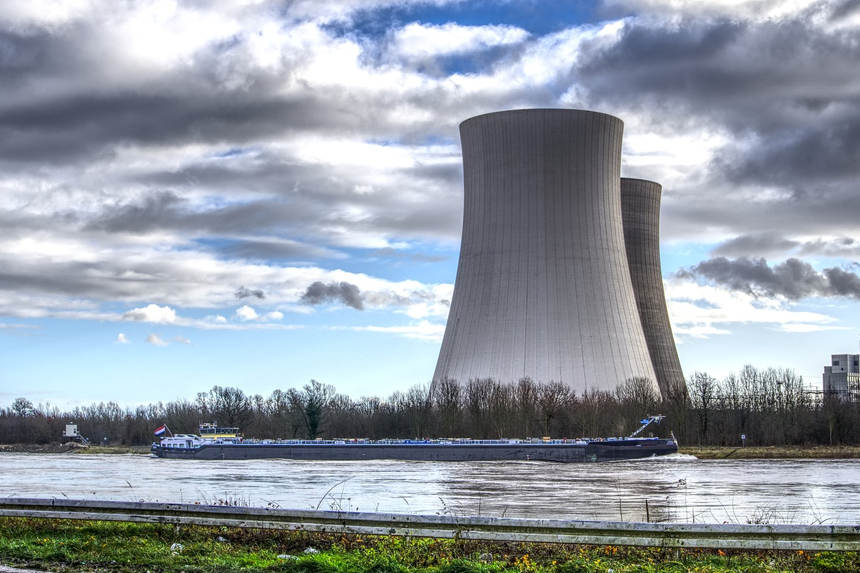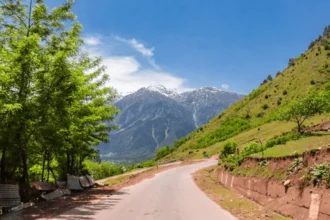In recent years, the global perspective on nuclear energy has shifted significantly, and with it, the demand for uranium—a critical component of nuclear fuel—has soared. This rise could position Canada as a leading player in nuclear energy, thanks to its vast reserves of high-grade uranium. The industry has witnessed a dramatic turnaround, with uranium prices spiking over 200% in recent years. Now, Canada is poised to capitalize on its rich resources, but the path forward is complex.
- Has the World’s View of Nuclear Power Changed?
- What Makes Canada’s Athabasca Basin So Valuable?
- How is the Global Demand for Uranium Impacting Canada?
- Is Canada Poised to Become a “One-Stop Shop” for Nuclear Energy?
- Can Canada Address Environmental Concerns Around Nuclear Energy?
- Will Canada’s Uranium Boom Endure or Bust?
- What Lies Ahead for Canada’s Nuclear Ambitions?
Has the World’s View of Nuclear Power Changed?
The story of uranium’s resurgence in Canada begins with the Fukushima nuclear disaster in 2011, a catastrophe that severely damaged global confidence in nuclear power. The crisis led to a sharp decline in uranium prices, hitting those in the industry hard. Leigh Curyer, CEO of NexGen Energy, recalls, “For nearly two decades, nuclear power was in a slump. No one in the industry expected this turnaround.”
However, a renewed focus on climate change has revived interest in nuclear energy. Many now view it as a critical low-emission alternative to fossil fuels. Microsoft founder Bill Gates was among the first to publicly champion nuclear power as an “ideal” climate solution, sparking renewed interest. Following suit, global leaders have advocated for nuclear power as a viable energy solution, with the UK setting a target to derive 25% of its energy from nuclear sources.
“These events were catalytic for the uranium industry,” said Curyer, “and we at NexGen have seen unprecedented interest from investors worldwide.”
What Makes Canada’s Athabasca Basin So Valuable?
Canada’s Athabasca Basin in northern Saskatchewan, home to some of the world’s highest-grade uranium deposits, has become ground zero for this renewed interest. NexGen’s Arrow project, which is expected to begin operations in 2028, is already valued at nearly $4 billion. If successful, NexGen’s mine could propel Canada to the top of global uranium production, surpassing even Kazakhstan.
“Canada has always had high-grade uranium deposits, but we have not tapped into their full potential,” said Markus Piro, a nuclear engineering professor at McMaster University. “The Athabasca Basin is unique because of the concentration and quality of its uranium, which makes extraction more efficient.”
Companies like Cameco, Canada’s largest uranium producer, have re-opened two mines in Saskatchewan and increased production to meet the growing demand. Tim Gitzel, CEO of Cameco, envisions a bright future: “Canada could be a nuclear superpower. We have the resources, and with the right support, we can meet the world’s rising demand for nuclear energy.”
How is the Global Demand for Uranium Impacting Canada?
The push for Canadian uranium also has a geopolitical dimension. Russia’s invasion of Ukraine has disrupted global energy markets and spurred nations like the US to seek alternative sources of uranium, given their reliance on Russian-supplied enriched uranium. Curyer believes that Canada’s uranium could be “absolutely critical” to the US energy strategy.
“This is an opportunity not only for Canada but for the US as well,” Curyer noted. “There’s a growing recognition that we need reliable, politically stable uranium suppliers. Canada can step into that role.”
As nearly two dozen countries committed at COP28 to tripling nuclear power production by 2050, the demand for uranium is poised to climb. The World Nuclear Association reports that 60 nuclear reactors are under construction across 16 countries, with an additional 110 reactors planned. Yet, this acceleration underscores the urgency of finding secure, high-quality uranium supplies.
Is Canada Poised to Become a “One-Stop Shop” for Nuclear Energy?
Canada has a unique advantage: the country possesses not only uranium resources but also the infrastructure needed to produce nuclear fuel. Professor Piro describes Canada as a “tier-one nuclear nation” because it can produce nuclear fuel from mining through to manufacturing. “Not every country has this level of capability,” he said, “Canada is what you’d call a one-stop shop in the nuclear sector.”
Once mined, uranium is processed into calcined yellowcake and can be further enriched to produce nuclear fuel. This vertical integration makes Canada a particularly attractive player in the global market. Currently, Canada is the world’s second-largest producer of uranium, contributing about 13% of the global supply, a figure that could rise to 25% once NexGen’s mine is fully operational.
Can Canada Address Environmental Concerns Around Nuclear Energy?
While nuclear energy’s low carbon emissions have garnered renewed support, some environmental groups are cautious. The high costs and lengthy timelines associated with nuclear projects do not always align with the urgent needs of the climate crisis, critics argue. There’s also concern over radioactive waste, a long-standing issue with nuclear energy. “The risk isn’t zero,” said Prof. Piro, referencing the 2011 Fukushima disaster, “but it can be minimized.”
Gitzel, however, believes public sentiment is shifting. “The industry has learned from past mistakes,” he said. “We’re building reactors with much higher safety standards. And in Canada, there is strong public support for nuclear power.” Indeed, a 2023 Ipsos poll indicates that 55% of Canadians now favor nuclear energy, marking a significant shift in opinion over the past decade.
Still, some Canadian provinces remain hesitant. British Columbia, despite having its uranium reserves, has not permitted nuclear plants or uranium mines since 1980. Quebec closed its last nuclear plant in 2021, citing environmental concerns.
Will Canada’s Uranium Boom Endure or Bust?
Past uranium booms in Canada have turned to busts before, as exemplified by Uranium City in northern Saskatchewan. Once home to 2,500 residents during the mid-20th-century uranium boom, the town’s population now sits at a mere 91 people after a major local mining company shut down in 1982 due to low uranium prices. For investors and communities in Canada, the current boom brings both excitement and a reminder of the cyclical nature of the industry.
However, investors argue this time may be different. With global climate commitments and a need to replace Russian uranium supplies, there is a strong foundation for demand. As Curyer puts it, “There’s a real need this time. It’s not speculative.”
What Lies Ahead for Canada’s Nuclear Ambitions?
Canada’s uranium industry now faces a critical juncture. NexGen anticipates starting construction on its Athabasca Basin mine next year, pending regulatory approval. The Canadian regulatory process can be lengthy, and not every project reaches production. Gitzel urges caution, noting, “Building a mine can take five to ten years. We have seen companies start exploration only to stop short of production.”
For Curyer and others in the industry, timing is essential. “If we don’t get these projects up and running within the next four years,” he warns, “we’ll face a shortage in uranium, which will drive up power costs globally.”
Canada’s potential as a nuclear “superpower” is within reach, yet it depends on balancing environmental concerns, regulatory processes, and evolving global demands. For now, Canada’s uranium industry stands ready, waiting to see if the world’s changing energy needs can sustain this new era of nuclear optimism.
Biden Expresses Doubts Over Peaceful Transition if Trump Loses








